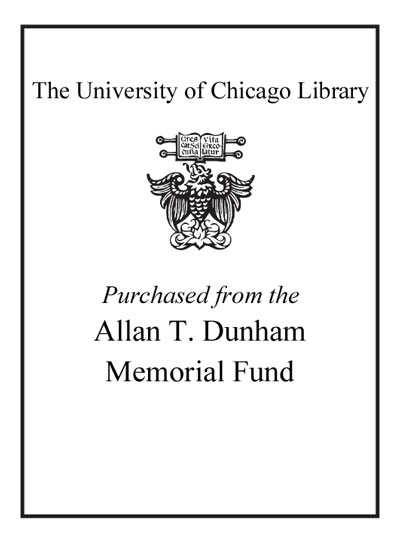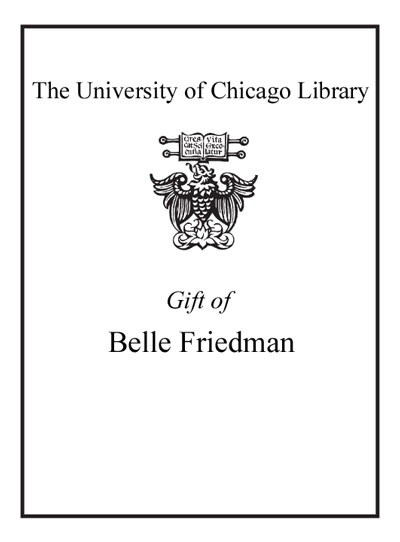Cuddles Houlihan got clipped by the vodka bottle as it exited the pneumatic tube. "Goddammit!" The cry of pain that filled the office came not from Cuddles, whose head still lay asleep on his desk, but from the tube. Its ultimate source was the office of Joe Harris, the editor-in-chief. At this late, sozzled hour, Harris had mistakenly fed the interoffice mail chute not the translucent canister containing his angry communication to Cuddles, but the still-half-full, six-dollar quart of hooch he was regularly supplied with by the countess in the fact-checking department. Harris glowered for several seconds at the undispatched canister, before giving in to the impulse to open it up and look once more at what had enraged him in the first place: a photograph of Leopold and Loeb, smiling, each with an arm around the other, perched on the edge of an upper bunk in the Joliet State Prison, both of them avidly regarding the latest issue of Bandbox. The thrill killers held it open with their free hands, like a box of candy they were sharing on a back-porch swing. Would make a great ad, said the inked message on the back of the photograph, whose bold penmanship Harris recognized as belonging to Jimmy Gordon, up until eight months ago his best senior editor here at Bandbox. "I think of you as a bastard son," he'd once told Jimmy in a burst of bibulous sentiment. Now, as editor-in-chief of Cutaway, the younger man was his head-to-head, hand-to-throat, competition. If Harris didn't think of something, this picture of those two murderous fairies reading Bandbox--the magazine that had made goddamn Jimmy Gordon, and remade Jehoshaphat Harris--would be plastered to the side of every double-decker bus crawling up Fifth Avenue. Rummaging his bottom drawer for another quart of vodka, Harris--a great curator of his own life story--managed to consider, yet again, with prideful amazement, how only five years had passed since Hiram Oldcastle, the publisher, had said, "You want it? It's yours," giving him the Bandbox job as if it were the keys to a jalopy. "An overpriced rag for overaged pansies," Oldcastle had called the dying men's fashion book, which had somehow never evolved out of the tintyped, stiff-collared days of McKinley. Harris would be the magazine's last chance before Oldcastle killed the sclerotic monthly and concentrated on his more robust publications, like Pinafore, for the "young miss"--edited by Harris's girlfriend, Betty Divine--and the shelter book, Manse. "Give me six months," Harris had said. "Take a year," Oldcastle had replied, sounding almost guilty about the eagerness with which the new editor wanted to take charge. It took Harris one business quarter to bring Bandbox to life, to hit upon a formula that lured young men and advertisers back to a magazine no one had paid attention to for years. He kept the fashion--even made it fashionable--then butched up the rest of the production, adding a slew of stylish articles about all the sports, politics, crime, money, and movies that went into the current age's cocktail. Newsstand buyers and subscribers were now deciding they craved the camel-hair coat on page 46 just as much as they needed to sleep with the screen siren or buy the radio stock described a few pages away. The table of contents might sometimes seem a tasteless whipsaw--"New Hope for the Shell-Shocked" sitting right above "Look Terrific for Under Two Hundred"--but the magazine's turnaround had been so successful that by the spring of last year, Condé Nast decided he could not leave a whole new field to his usually more downmarket competitor, Oldcastle. Last March he had announced the start-up of Cutaway, exactly the sort of clothes-and-journalism book Harris had concocted; and on April 30, he had named Jimmy Gordon its editor. Jimmy Gordon: who had brought in most of Harris's expensive new writers; who had three bad story ideas for every good one, but so many of each that, with Harris as a filter, every issue of Bandbox still abounded with first-rate stuff. Jimmy Gordon, who was now stealing not only Harris's formula but every keister not nailed down to the swivel chairs here on the fourteenth floor of the Graybar Building. He'd pried away three of his old writers, a photographer, and two production assistants, and had even made a run at Mrs. Zimmerman, the receptionist. But the real prize for Jimmy was Harris's readers and advertisers, whom he would surely keep wooing away if he managed, with stunts like this Leopold and Loeb picture, to undo the makeover of Bandbox. Things could turn around so quickly--hadn't Harris himself proved it?--that the older editor would be left with a shrunken subscriber base consisting chiefly of the perfumed boys you saw gazing at each other across the tables of the Jewel cafeteria. Hazel Snow buzzed Harris from the outer office. "It's a bad time!" he shouted. Hazel ignored him. "Mr. Lord and Miss O'Grady here to see you," she said, indifferent to anything but her desire to go home. Through the intercom Harris could hear the squeaky sound of Hazel putting on her galoshes. "You picked the worst possible moment!" he shouted to Richard Lord and Nan O'Grady once Hazel had ushered them in. The English art and fashion director looked at his expensive shoes, still unscuffed at this late hour, and whispered, "It's about Lindstrom, I'm afraid." "What about him?" Harris asked, in a voice that made plain, for all its volume, that he would rather know nothing new concerning Waldo Lindstrom, the handsomest young man in New York, and Bandbox's most frequent cover model now that photographs were replacing illustrations. Harris would be more receptive to tidings of this Adonis were Lindstrom not also an omnisexual cocaine addict who had escaped from the Kansas State Penitentiary a few years ago at the age of twenty, and whose work for Oldcastle Publications depended on frequent payments from Harris to the NYPD's vice squad. "He never showed up," murmured Lord, while he adjusted the two points of his breast-pocket handkerchief. "Find his pusher!" bellowed Harris. "Call the morgue! Why are you bothering me? And why are you bothering me?" he continued, turning his eyes and anger to Nan O'Grady, the copy chief, whose lower lip had begun to tremble. A tear wobbled in the lower reaches of her left eye, ready to drip down her powdered cheek and cut a line that would run parallel to her straight red hair. "It's Mr. Stanwick's piece on Arnold Rothstein." Max Stanwick, a successful writer of hard-boiled mystery novels, now also wrote features for Bandbox on the nation's ever-burgeoning crime wave. The fact-checkers sometimes muttered that he had made no discernible shift from the methods of his old genre to those of nonfiction, but Stanwick's pieces were immensely popular and the occasion for some of Harris's more memorable cover lines: lend me your ears had announced Max's recent report on a spate of loan-sharking mutilations in Detroit. Harris trembled at the thought of losing him to Jimmy Gordon, who had brought him to Bandbox in the first place. "And what's the problem with Stanwick, Miss O'Grady? Some people in his piece saying 'who' instead of 'whom'? They're gangsters, Irish." Nan, who until two years ago had edited lady novelists at Scribner's, and who had taken this better-paying job to help support the mother she lived with out in Woodside, forced her lower lip to stiffen. The tear in her left eye sank backwards without spilling. She glared at her boss. "It's not a question of subject versus object, Mr. Harris. It's a question of . . . schvantz." She pronounced it with the lilting precision of a lieder singer. "Whose schvantz?" Harris wanted to know. "Mr. Rothstein's, apparently." Harris hesitated for only a second. "Well, keep it in!" Nan, her lower lip now fully retracted, held her ground. "I assure you that it's in no known style book, and I guarantee you that within a week of publication, a half-dozen of your precious advertisers will have protested its use in--" "More schvantzes all around!" cried Harris, suddenly on his feet. "And the balls to go with them! This is a men's magazine! Out! And close the door behind you!" After Harris watched a trio of departing forms--Hazel's among them--through the frosted glass of his door, he allowed himself to sit back down and light a cigar. He looked out the fourteenth-floor windows of his corner office to the vertical world aborning all around him. The Bowery Savings Bank loomed in the southeast, and a few streets over, close to the river, he could see the absurd new towers of Tudor City, in whose tiny apartments his aging pals had taken to stashing their chorines and tootsies. Directly across Lexington Avenue, and also one block south, squares of earth were roped off for the great excavations now sprouting the Chrysler and Chanin buildings. It all made Harris dizzy. From his long-ago days on the Newburgh Messenger until this past fall, when Oldcastle had moved the company a few blocks up from its old quarters and into the gleaming new Graybar, Harris had always climbed a single flight of stairs to reach his job. Now every morning and evening his stomach endured the fast jumps and drops of the Graybar's elevator, the trip made worse if he happened to be sharing the car with Jimmy Gordon, who'd be on his way to and from the Graybar's fanciest floor--reserved by Condé Nast even before the building went up, thus exciting Oldcastle's competitive relocation. Harris took a gulp of the countess's hooch and opened up the Evening Graphic to a cartoon panel above the "Aviation News" column, a few square inches he liked to settle into for a moment or two each evening as the clouds began turning pink outside his skyscraping aerie. Tonight--January 13, 1928--"New York's Gas Lit Life" featured the sketch of a buxom "stagestruck damsel," a young Lillian Russell type, auditioning for a well-fed theatrical manager. Little more than her parasol and bloomers shielded her ample virtues. Harris sighed, recalling the days of his youth, the long-ago eighties and nineties, an era before big trenchermen had ever heard of exercise and before bosoms had deflated to the pitiful boyish protuberances on modern girls like Hazel Snow. He closed his eyes and, for a few seconds, took himself back to summer nights alive with the tootlings of oompah bands instead of the discordant, mystifying notes of jazz; to the orating politician's thrilling cry for free silver instead of Everyman's current pursuit of ubiquitous easy money. Harris was sixty years old and, in truth, as much a throwback to the age of McKinley as the old Bandbox had been. But in order to sustain his reanimating magic, he had to keep current with all the flat chests and blues singers and tennis champions driving this frantic new age into which he'd outlived himself. If only he could bring himself to leave the game, gracefully conclude his career by editing Knife and Fork, Oldcastle's food magazine, for a couple of years. All he'd have to do for each month's cover was find a good-looking pork chop or strawberry cake, neither of which, unlike Waldo Lindstrom, would have a cocaine habit. Excerpted from Bandbox by Thomas Mallon All rights reserved by the original copyright owners. Excerpts are provided for display purposes only and may not be reproduced, reprinted or distributed without the written permission of the publisher.


